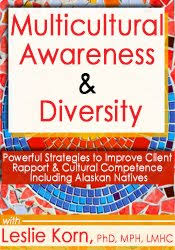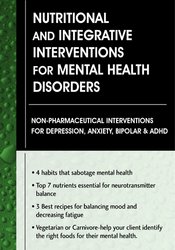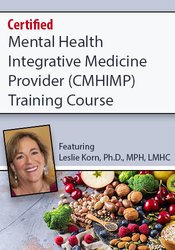🎁 Exclusive Discount Just for You!
Today only: Get 30% OFF this course. Use code MYDEAL30 at checkout. Don’t miss out!
So I’ve dedicated my career to working with diverse communities that use culture as a primary means of regaining and maintaining physical and mental health.
Leslie Korn – Multicultural Awareness & Diversity

Description:
For the last 40 years I have had the honor of working with indigenous populations. First, in Mexico in small fishing communities. Then later in Alaska, Alaska, and the Pacific Northwest British Columbia.
As a trauma specialist I am particularly interested in the effects of trauma on families and communities. Also, how traditional and cultural healing practices are used to support conventional mental health therapies.
So I’ve dedicated my career to working with diverse communities that use culture as a primary means of regaining and maintaining physical and mental health.
I have also discovered that cultural competence can be applied across all group and is rooted in understanding who and where we come form as we examine its relevance for our work as clinicians.
I have come to feel comfortable treating anyone regardless of their cultural background. Even if I don’t know a lot about their culture, I am comfortable asking my client to teach me what is important to them.
Take a day with me-Long journey into the world cultural competency. Many of these ideas will be discussed in connection to Alaska’s diverse populations. Enhance assessment, avoid ethical dilemmas, and overcome fear Learn how to adapt treatment for different groups and build rapport with clients. Find out how you can use your identity to help clients.
You will be known as the best therapist for diverse clients in your area.
This seminar may be all you need to attend. 6 CE hours of cultural competency including 3 Alaskan natives mental health cultural competency CE Hours & 3 CE hours of Alaskan ethics credit. I can guarantee that you will come away with much more. This engaging seminar is interactive and will challenge you to examine the interplay of your beliefs and your clinical work. It will also help you become more culturally sensitive as a clinician.
OUTLINE
Cultural Competencies in Mental Healthcare
- Mindfulness-Cultural competence: A culturally based approach
- Trends in a specific location: Variation and mental health needs
- Recognize cultural differences. Terms of reference, racism and stereotypes
- Enhance client relations
- Establish cultural connections
- Acquire knowledge & skills
- Consider behavior in a cultural context
- Exercise: Cultural (s), biases, or ethnic influences
Ethics & the DSM- 5®: New Guidelines for the Integration of Cultural Competencies
- Cross-Cultural variations in presentation
- Cultural concepts of distress
- Diagnostic protocols and assessments
- DSM-5® cultural formulation
- Cultural factors influencing clients’ perspectives of their symptoms and treatment options
- Ethical standards to ensure culturally competent practice
- Exercise: Interview with Cultural Formulation
Learn to Overcome Your Dilemmas in the Practice
- Working with clients who speak little English and are bi/multilingual
- When is it appropriate to use an interpreter?
- Intersection of religion, culture and customs
- Counselling, spiritual experience and mental health
- Cultural transference and counter-transference
- Exercise: Experiences with micro-Aggression
Interventions & Strategies for Alaskan Native Populations
- Interventions & Strategies for Alaskan Native Populations
- Contact: Boarding School, Clergy Abuse; Historical Trauma in Alaska
- Alaska Natives are vulnerable to mental and physical illness, ranging from ADHD to dementia.
- Cultural strategies for mental and physical well-being
- Traditional Alaskan nutrition for mental health
- Innovative intervention and research programs
- Alaskan Native Resources
- Video: Carved From the Heart
Would you like to be contacted? Leslie Korn – Multicultural Awareness & Diversity ?
OBJECTIVES
- Implement new DSM- 5® criteria and cultural formulation.
- Recognize your biases and strategies to build rapport with diverse clients.
- Assessment and treatment strategies should be implemented for historical and cultural trauma.
- Discuss best practices for working with religious and ethnic clients.
- Use your skills to overcome cultural barriers like language, religion, and other belief systems
- In your practice, you can use strategies and techniques that promote multicultural competences.
- Use culture-Mindfulness and breathing techniques based on mindfulness.
Course Features
- Lectures 0
- Quizzes 0
- Duration Lifetime access
- Skill level All levels
- Language English
- Students 0
- Assessments Yes


